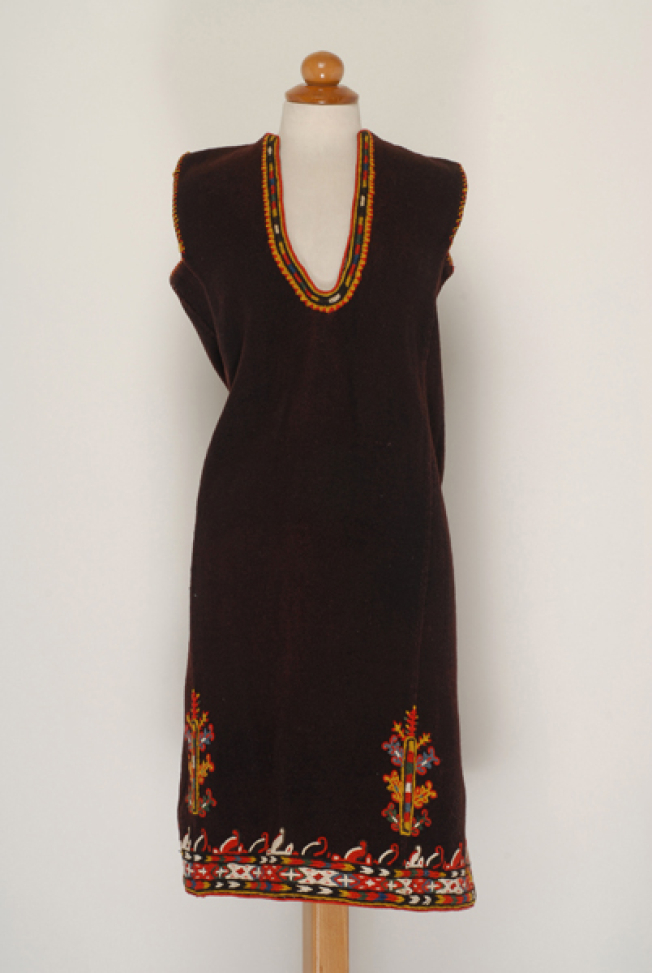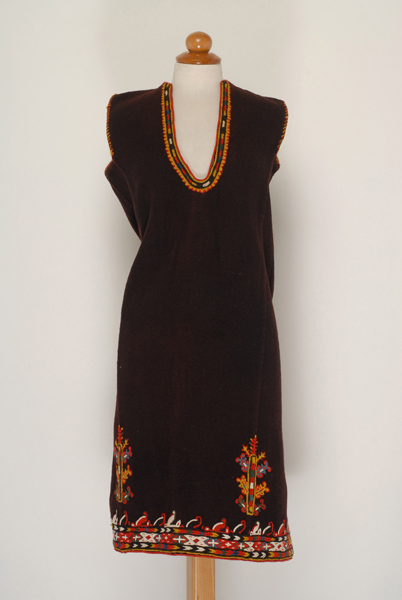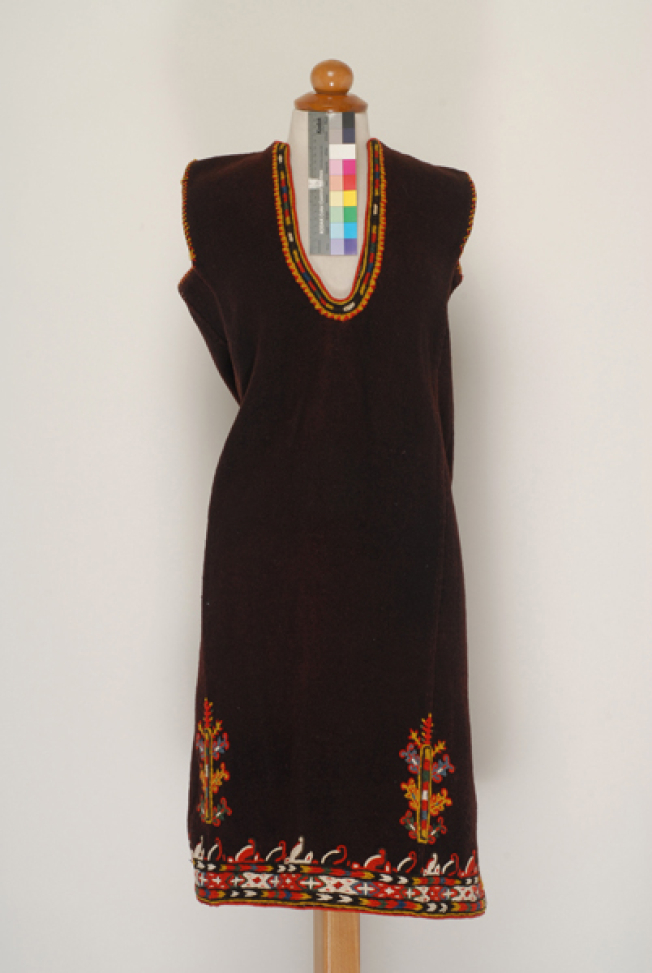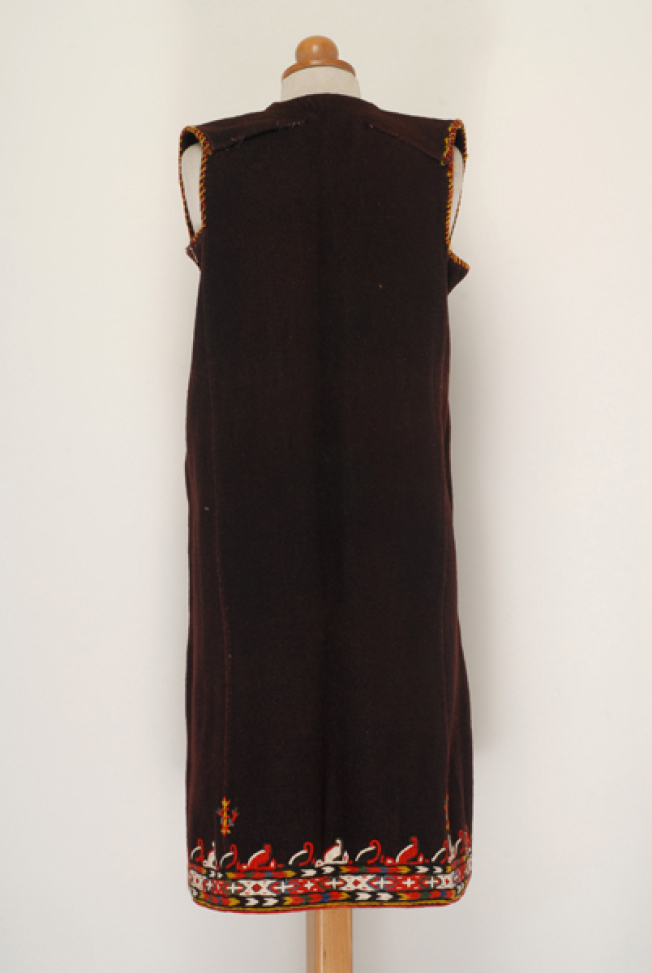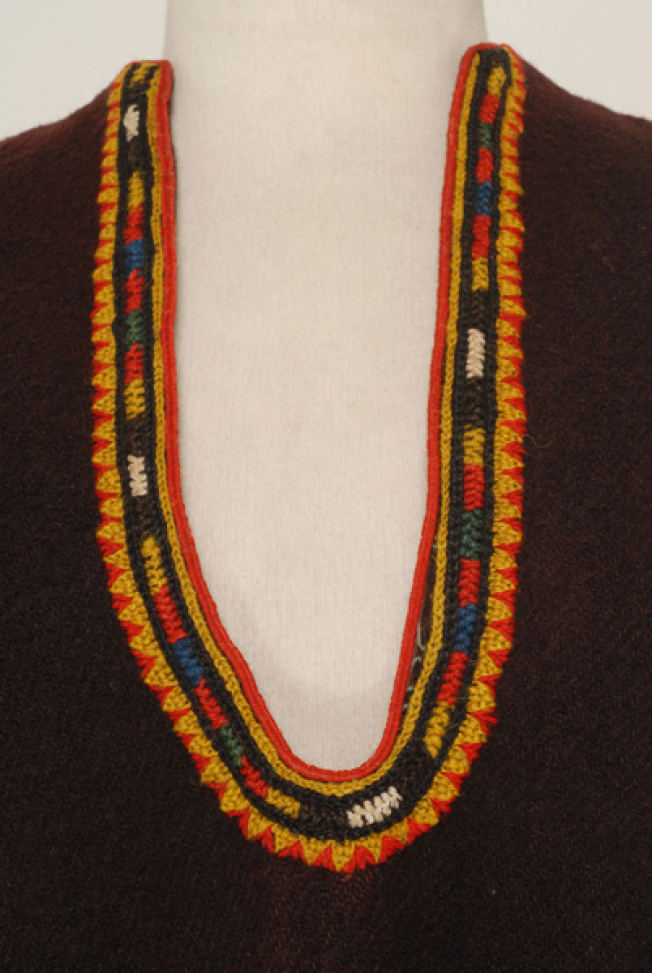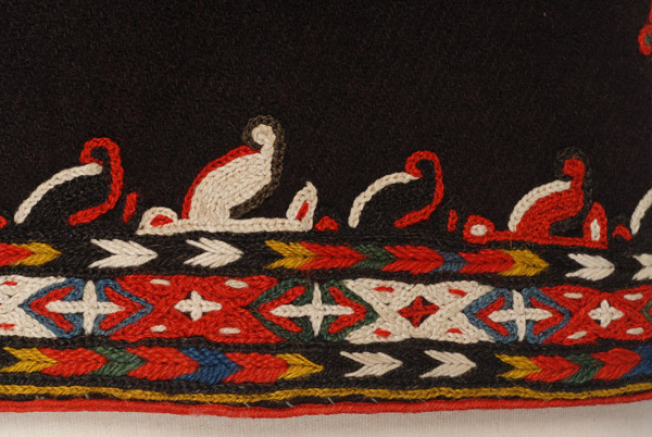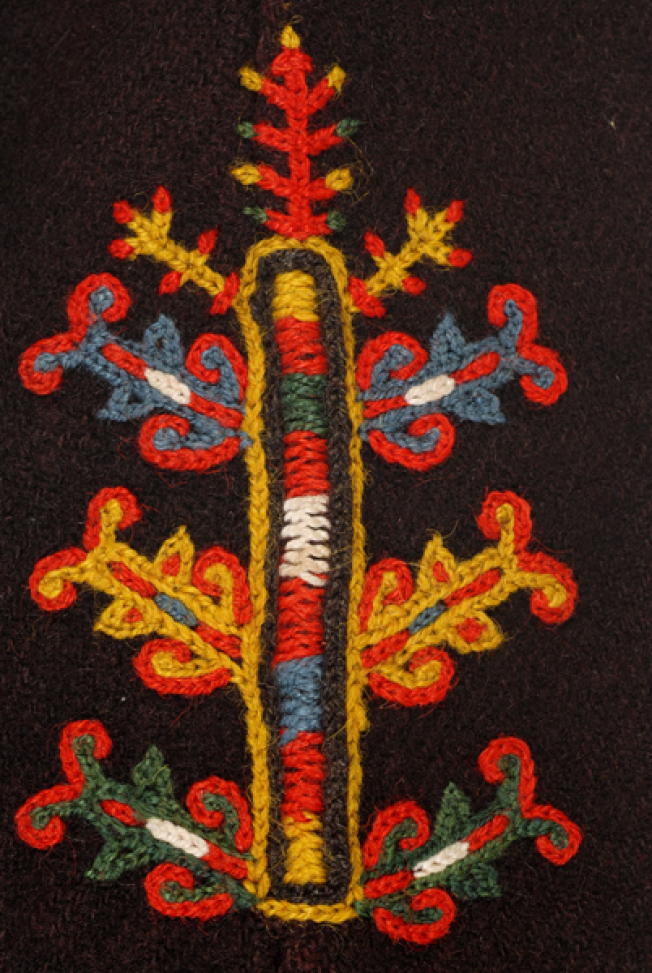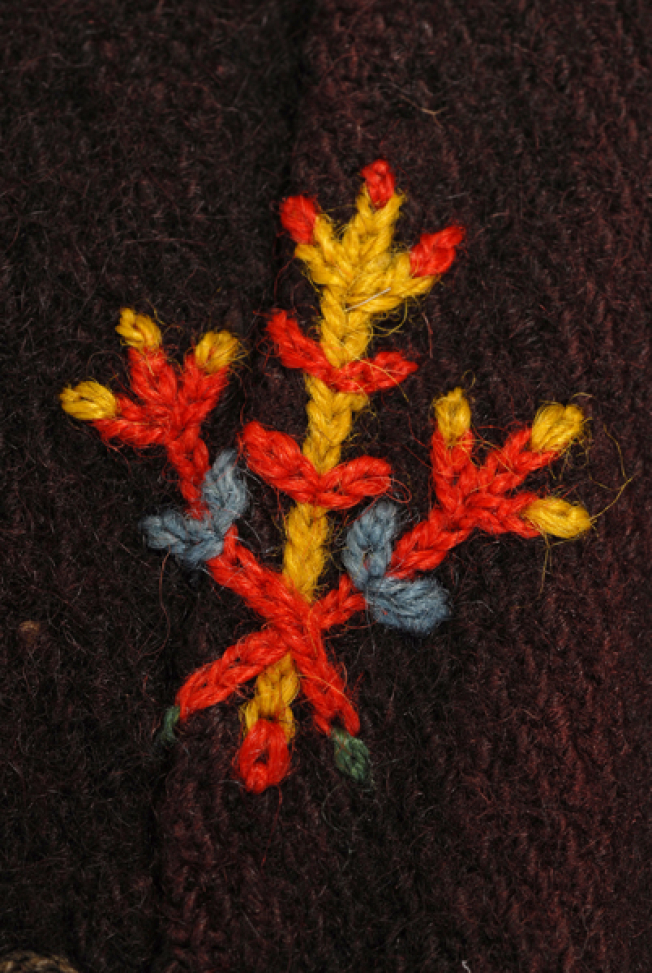foustani (dress)
1711/1
Object Identity
Object ID Number
1711/1
Object name
foustani (dress)
Other / Local name
foustan
Style
peasant
Production date range
beginning of 20th century
Part of outfit
No
Physical Description
Description
Φουστάν, αμάνικο, βυσσινί, γυναικείο φουστάνι. Είναι καμωμένο από αδίμτο (δίμιτο) σαγιάκι (μαλλί της νεροτριβής), από τις ίδιες τις γυναίκες στον αργαλειό. Ύστερα γινόταν το ντουλάπιασμα, το κέντημα στο χέρι και τέλος η βαφή. Τα βαμβακερά νήματα του κεντήματος κατά τη βαφή δεν "έπιαναν" χρώμα. Το φουστάν αποτελείται από ένα μονοκόμματο φύλλο υφάσματος μπρος - πίσω και στο πλάι φαρδαίνει με την προσθήκη τεσσάρων λοξών φύλλων, που ονομάζονται κλίντα, (δύο σε κάθε πλευρά) από το άνοιγμα της μασχάλης, καβαδούρα, και κάτω. Εσωτερικά, το άνοιγμα του αυχένα είναι ρελιασμένο με καφέ, βαμβακερό υφαντό. Για τη διακόσμηση πρώτα στρίφωνουν τα ανοίγματα και τα διακοσμούν με γαϊτάνια μάλλινα. Η διαδικασία του κεντήματος χωρίζεται σε δύο στάδια. Το πρώτο, με το βάρδε ή κιτρίνισμα, είναι
η εκτέλεση της κεντητής διακόσμησης του ποδόγυρου με χρωματιστά νήματα και βελονιά αλυσίδα. Το δεύτερο, με το μπάρδε ή άσπρισμα, είναι η εκτέλεση της διακόσμησης με λευκό, ελαφρά κλωσμένο βαμβάκι, με βελονιά θηλειά. Η διακόσμηση είναι από κάτω προς τα πάνω είναι η εξής: κόκκινo, μαύρο, μπλε και κίτρινο γκαϊτάνι, αλατζά γιάνε (ταινία με λοξές χρωματιστές γραμμές), οριζόντια ζώνη με καρούλε (χρωματιστοί ρόμβοι με λευκό σταυρό στη μέση), αλατζά γιάνε. Στην πιο ψηλή σειρά, κεντητά σχηματοποιημένα μοτίβα. Οι ζώνες διακόσμησης χωρίζονται με πολύχρωμα βίτσα, σειρές καμωμένες με βελονιά αλυσίδα από μάλλινα νήματα. Πάνω από την οριζόντια διακόσμηση του ποδόγυρου, οι ραφές διακοσμούνται με κέντημα: οι δύο μπροστινές έχουν σχηματοποιημένα φυτικά μοτίβα με πολύχρωμα γκαϊτάνια εσωτερικά. Οι πλαϊνές ραγές, καθώς και οι πίσω από ένα κλαδάκι, ντάλε. Τέλος, γίνεται η διακόσμηση στην τραϊλέ, τραχηλιά, με χρωματιστά γκαϊτάνια, κόκκινο, μπλε και πράσινο, κίτρινο και μαύρο. Στη δεξιά πλευρά, κάτω από την καβαδούρα, υπάρχει μεταλλικό φερμουάρ 32εκ, μεταγενέστερα τοποθετημένο.
Decoration & Patterns
Decoration
geometric decoration
Decorative patterns / subjects
yiane, horizontal bands, klitse
Decoration
religious motifs
Decorative patterns / subjects
small crosses
Decoration
stylized decoration
Decorative patterns / subjects
-
Decoration
vegetal decoration
Decorative patterns / subjects
dale
Height
1.030
Width
0.350
Production
Maker / Designer / Brand
women themselves
Production date range
beginning of 20th century
Production place (Country | Geographic Area | Prefecture & Region)
-
Eastern Thrace (Mega Zaloufi)
Material
cotton
cotton thread
fullen wool fabric
wool cordon
wool thread
Techniques
applique
handwoven fabric
handwoven fabric,
dimity fabric
handwoven fabric,
nerotrivi (fulling-tub), ntoulapia
traced design embroidery,
chain
traced design embroidery,
loop
Use
Population / Cultural / Ethnic group
refugees
User
woman
Occasion
festive
Date range
beginning of 20th century
Place of use (Country | Geographic Area | Prefecture & Region)
-
Eastern Thrace (Mega Zaloufi)
Acquisition
Acquisition method
Purchase
Documentation
Research bibliographic references
Image license
Use the file or the thumbnail of the image according to the license:
CC BY-NC-ND 4.0
Attribution-NonCommercial-NoDerivatives





